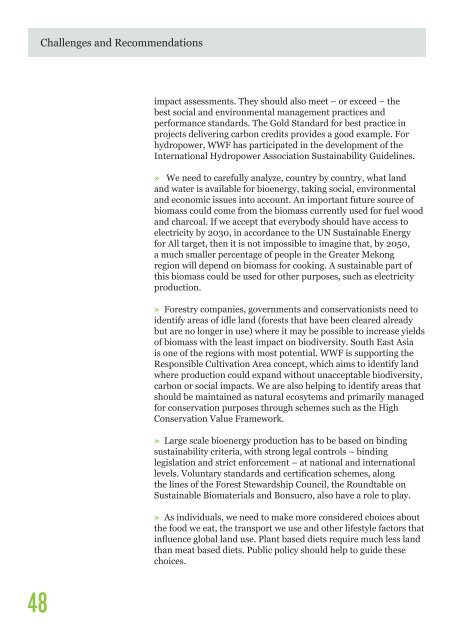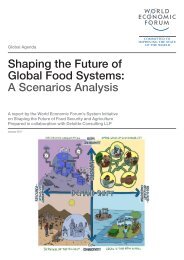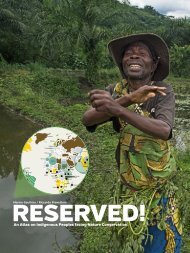Vision 2050
wwf_greater_mekong_power_sector_vision_2050
wwf_greater_mekong_power_sector_vision_2050
Create successful ePaper yourself
Turn your PDF publications into a flip-book with our unique Google optimized e-Paper software.
Challenges and Recommendations<br />
impact assessments. They should also meet – or exceed – the<br />
best social and environmental management practices and<br />
performance standards. The Gold Standard for best practice in<br />
projects delivering carbon credits provides a good example. For<br />
hydropower, WWF has participated in the development of the<br />
International Hydropower Association Sustainability Guidelines.<br />
» We need to carefully analyze, country by country, what land<br />
and water is available for bioenergy, taking social, environmental<br />
and economic issues into account. An important future source of<br />
biomass could come from the biomass currently used for fuel wood<br />
and charcoal. If we accept that everybody should have access to<br />
electricity by 2030, in accordance to the UN Sustainable Energy<br />
for All target, then it is not impossible to imagine that, by <strong>2050</strong>,<br />
a much smaller percentage of people in the Greater Mekong<br />
region will depend on biomass for cooking. A sustainable part of<br />
this biomass could be used for other purposes, such as electricity<br />
production.<br />
» Forestry companies, governments and conservationists need to<br />
identify areas of idle land (forests that have been cleared already<br />
but are no longer in use) where it may be possible to increase yields<br />
of biomass with the least impact on biodiversity. South East Asia<br />
is one of the regions with most potential. WWF is supporting the<br />
Responsible Cultivation Area concept, which aims to identify land<br />
where production could expand without unacceptable biodiversity,<br />
carbon or social impacts. We are also helping to identify areas that<br />
should be maintained as natural ecosytems and primarily managed<br />
for conservation purposes through schemes such as the High<br />
Conservation Value Framework.<br />
» Large scale bioenergy production has to be based on binding<br />
sustainability criteria, with strong legal controls – binding<br />
legislation and strict enforcement – at national and international<br />
levels. Voluntary standards and certification schemes, along<br />
the lines of the Forest Stewardship Council, the Roundtable on<br />
Sustainable Biomaterials and Bonsucro, also have a role to play.<br />
» As individuals, we need to make more considered choices about<br />
the food we eat, the transport we use and other lifestyle factors that<br />
influence global land use. Plant based diets require much less land<br />
than meat based diets. Public policy should help to guide these<br />
choices.<br />
48




